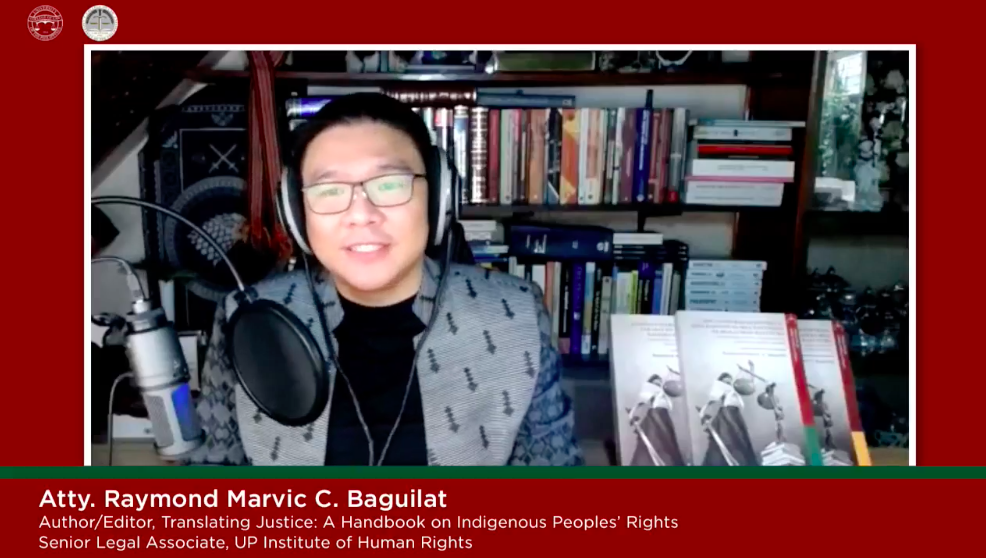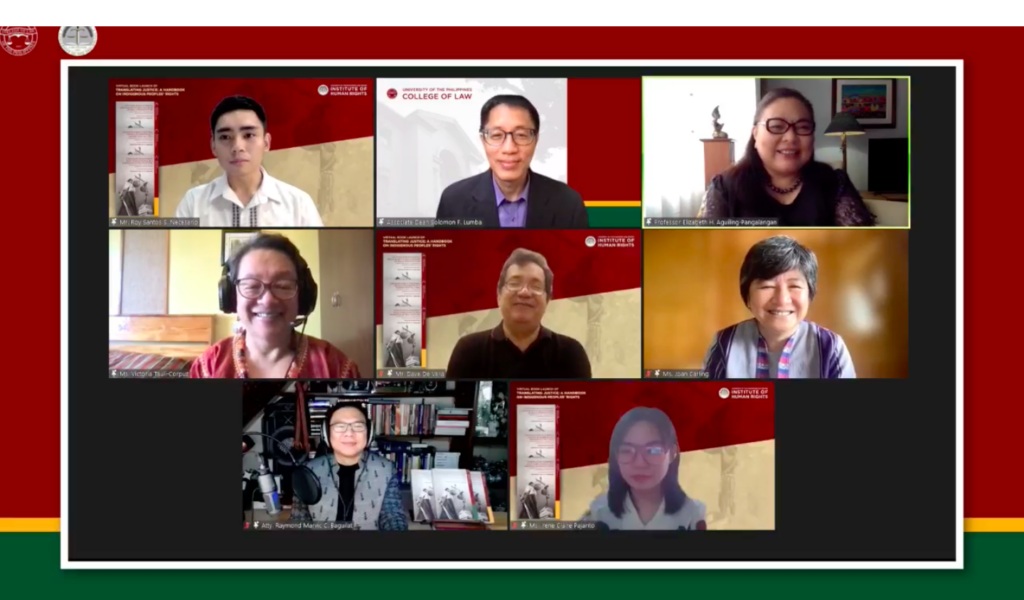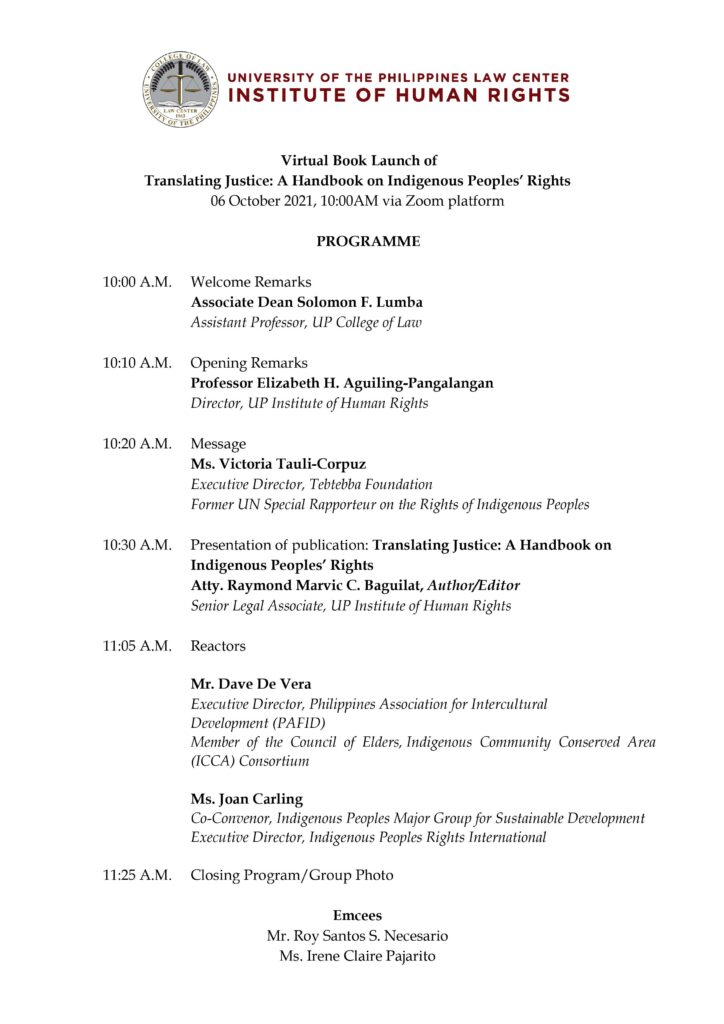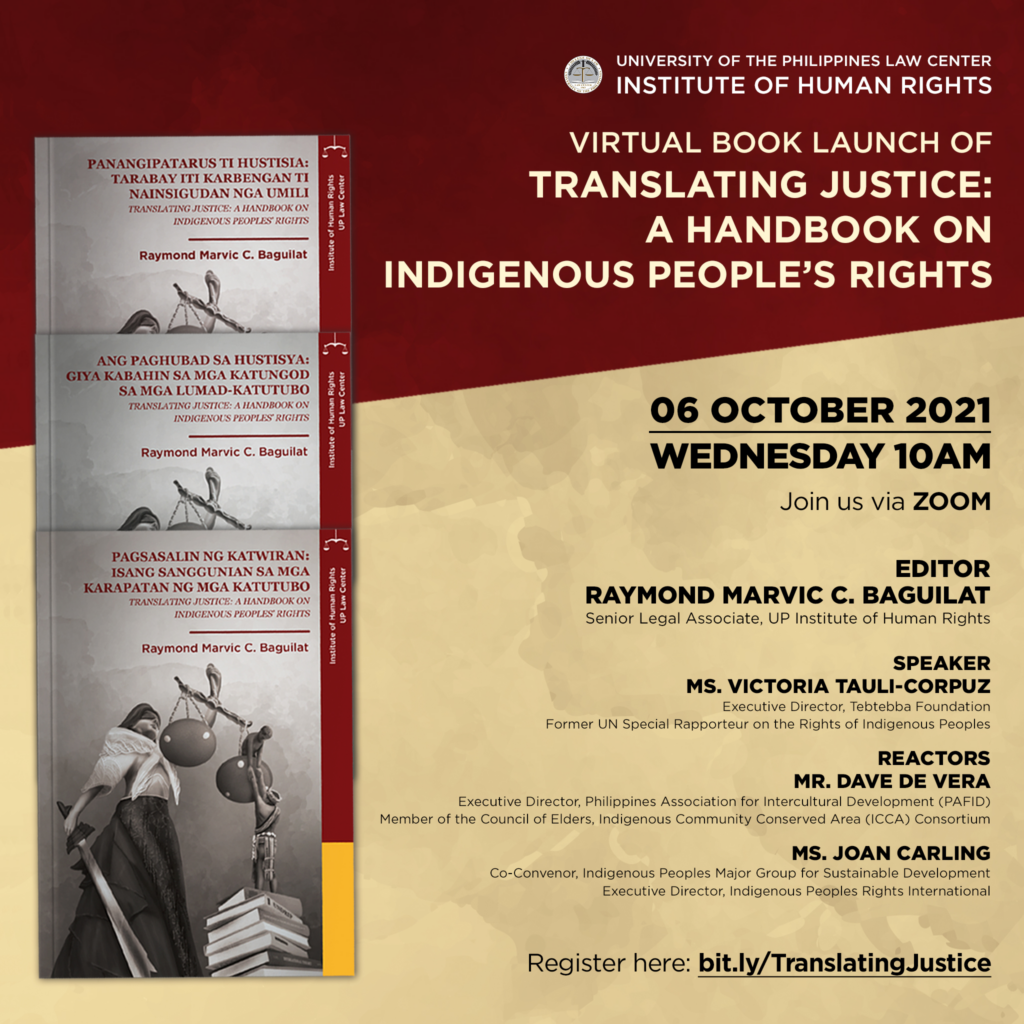UP IHR celebrates Indigenous Peoples Month with launch of “Translating Justice: A Handbook on Indigenous Peoples’ Rights”
On 6 October 2021, the UP Institute of Human Rights (UP IHR), in celebration of the Indigenous Peoples Month, launched “Translating Justice: A Handbook on Indigenous Peoples’ Rights.” The book provides translations of the Indigenous People’s Rights Act of 1997 (IPRA, Republic Act No. 8371), United Nations Declaration on the Rights of Indigenous Peoples (UNDRIP), and the Implementing Rules and Regulations of the IPRA into Tagalog, Sugbuanon and Iloco. Tuwali Ifugao lawyer and IHR Senior Legal Associate Atty. Raymond Marvic Baguilat, spearheaded this initiative to help address existing legal gaps and the lack of access to justice of Indigenous Peoples throughout the country.
UP College of Law Associate Dean Asst. Prof. Solomon Lumba opened the event and welcomed the attendees. In his welcome remarks, Prof. Lumba highlighted that this initiative is important to achieve unity amongst the different nations in the country.
UP IHR Director Professor Aguiling-Pangalangan, in her welcome remarks, explained the institute’s solidarity with Indigenous Peoples as they celebrate Indigenous Peoples Month. She discussed the plight of Indigenous Peoples in the country and their continued marginalization. She added that “Tragically, stories [covering violations of IP rights] like these come as no surprise given the sheer linguistic diversity of the Philippines… and, since only Filipino and English are official languages, many IPs are vulnerable to abuse and exploitation.”
Delivering her solidarity statement, former UN Special Rapporteur and current Executive Director of the Tebtebba Foundation Ms. Victoria Tauli-Corpuz said that “This handbook is particularly important at this time of the pandemic [because] many of the indigenous people do not have access to the internet.”
Mainbilling the event was Atty. Baguilat who shared about the journey that led to the publication of the book. He shared stories on the ground, where he and the rest of his research team visited Tagbanuas in Palawan and Tedurays in Maguindanao. He shared the trials of translating and provided for innovations that may also be adopted by similar projects. He then closed by pledging that the book is merely “the genesis in a continuum of efforts to surface and solve Indigenous Peoples concerns. It is one of the first few steps towards the attainment of access to justice for IPs and other vulnerable groups.”
As a reactor, Executive Director for the Philippine Association for Intercultural Development Mr. Dave De Vera underscored the importance of the discussion of the historical context of the IPRA. He added that the “publication being a product of the UP means a lot…It cannot be denied that the logo of UP provides strong credibility…and makes it a powerful and persuasive tool for Indigenous Peoples.” Sharing further that he looks forward to the next books that will cover the important Free, Prior, and Informed Consent Rules and Regulation.
For her part, UN Environment Programme Champions of the Earth awardee and co-convenor for the Indigenous Peoples Major Group for Sustainable Development Ms. Joan Carling added that the handbook can help improve “legal awareness of and understanding by indigenous people of their rights compels them to demand the respect and recognition” of these rights. She noted the importance of the book as a tool to empower Indigenous Peoples throughout the country. According to her, “this publication is a very strong tool for us to push for accountability for those who are violating the rights of indigenous peoples.” All three speakers shared their anticipation of the next translations of Indigenous legal instruments.











































































































 on the upper right corner to select a video.
on the upper right corner to select a video.